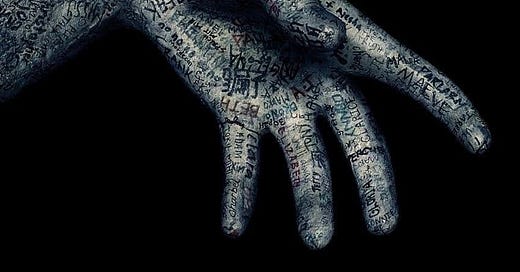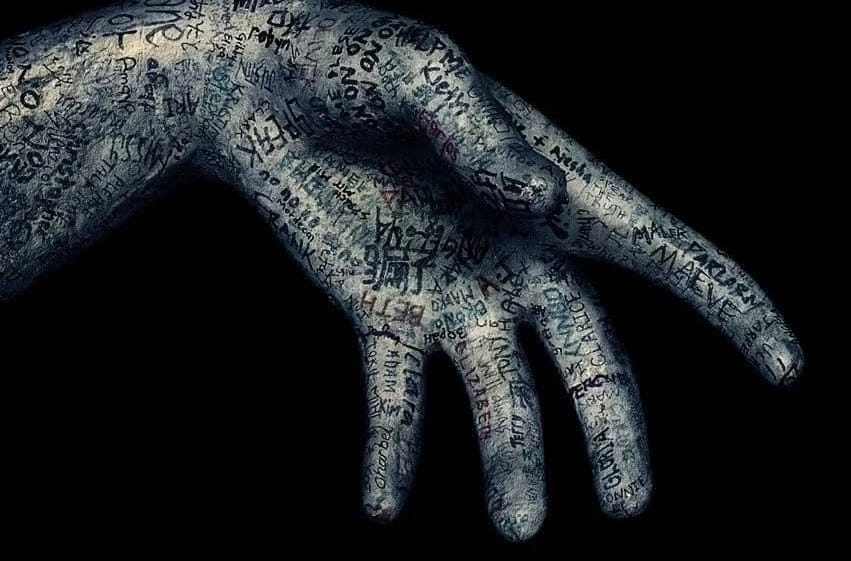Home is Where the Horror is
The everlasting maternal wound? Grief as horror itself? Yes, I'm familiar with her.
Grief– particularly of one’s mother– as motif, whether as the onset of a character’s deterioration or as the root of their personhood. The explicitly displayed or referenced catalyst of character’s shift into chaos is ultimately incredibly prevalent in film as a whole, but even more so in horror. Of course, death is central to horror, though a maternal loss is nearly inescapable. Absent mother, dead mother, cruel mother– it’s all a push into neurosis.
While this trope is often viewed as exhausted by filmgoers both casual and devoted, it depicts grief in a way that is not wholly far fetched. Horror merely provides a landscape for the most grotesque imaginings of someone who wants nothing more than to secure their hands around whatever false god failed them. My mother is the center of all I’ve been and will be. Could you imagine— sharing a body with another only to have them failed by modern medicine, faulty car mechanics, social engineering working overtime?
Talk to Me (2022)
Jason renders himself immortal in a quest for vengeance. Eric Draven is possessed by the spirit of a crow which allows him to enact justice for his slain beloved. Mia (of Talk to Me) knowingly communes with the dead in a futile attempt to reunite with her mother. Isn’t that what love is about in all its most untamed variations? Grief is an act of love in its own capacity; my love for my mom and my brother do not simply dull into something more distant or bearable. The unbound progeny don’t wander– we endure.
I exist solely in the rift between wanting to transcend death and wanting to succumb to it. I’m never quite entirely one more so than the other. Some days I imagine a reality in which resurrection could be bargained for. Most days I cry and bar my eyes from opening– I squeeze them as tightly as I can until they bloom candescent. Everyday in itself feels like a horror designed specifically for me. Am I meant to defeat death? If I were to shed every layer of lifelong neurosis, would I be misunderstood in my inevitable descent into the frenzy I’ve spent a decade trying to smother? If I cannot function 6 days out of 7 because I can only dream of my mom dying? Each time, a new display of viscera unfolds in my subconscious. When I speak of this, will it be socially acceptable to clarify that the dreams are almost never about cancer? I see car crashes, her reaching for my hand from her deathbed, her calling me to say goodbye, her entire physical being sloughing away as she tries to rise from death to hug me one last time.
Some days I fear I will never be able to picture my mother in any form but the one she died in. I think of her face and see a gaunt, fearful woman– I see her full head of pitch black soft hair, a weight that was once her norm suddenly distorted by the bulk of her physicality ensconcing something destined to kill her. I hear her voice confessing her fear, inquiring about her own being because her mind is no longer what it was. It ultimately feels like a cruel, cosmic joke. My mother– the woman who loved crime novels, Jurassic Park, The X-Files, any monster movie she could find– is now the center of me more than she has ever been. The memories of and with her my only defense against what seeks to overtake me. We’d watch horror movies and shitty made-for-tv thrillers together as though they were run of the mill programming for children with debilitating anxiety. But in hindsight, I always felt safest laying beside her on her tall bed, always adorned with earth toned bedding. The bedroom window opened when she could smell incoming rainstorms, a dim nightstand lamp kept on for my comfort.
Some years ago, I bought the Criterion edition of The Silence of the Lambs for my mom. I never gave it to her because it dawned on me that she would never experience it as she did before– characters would be unfamiliar, our favorite lines nothing more than strange sayings. I no longer feel calm when it rains. I watch the entirety of The X-Files nearly every year. I watch a movie about demons and possession, and almost smile at the memory of my mom attempting to ban supernatural horror from our household because she thought it would worsen my depression. The last movie we saw in theaters together was the abysmal remake of The Grudge that I begged her to go see with me simply because of my long-lasting love for John Cho. We rolled our eyes and sighed the entire time– we didn’t even finish the movie but it didn’t matter. Twenty or so dollars gone, but not a second wasted.
When I’d visit my mom during the final years she’d refuse to let me sleep on her couch because I’m “too tall” at a mere 5 feet and 6 inches. Every night I laid in her bed in her small apartment, and miss her. A mere few feet outside of her bedroom, she’d lay soundly asleep with the TV still playing whatever sitcom or news airing she’d fallen asleep to. Some nights I’d rise in the middle of the night just to watch her sleep for a moment. When I was a small child, I often slept in bed with her because of nightmares or whatever inexplicable phobia I’d developed and been unable to escape. My mother is the one I will rise with and lay down with for eternity—the cloak of her pressing gently upon my chest, as I did to her as a child. This is no metaphor. Maybe this isn’t entirely the horror I’ve accepted it as. I don’t have to become the vengeful antagonist or the reckless girl itching to escape any semblance of self awareness. My specific love for her can sit nowhere but within me. Maybe grief isn’t a curse or a cosmic cruelty– that love is still mine, and even in death it is hers.





